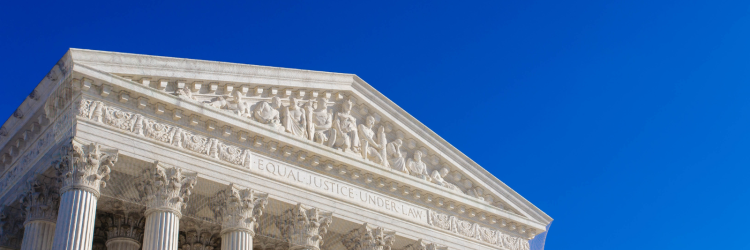Ever since the U.S. Supreme Court handed down a decision last week that bars affirmative action in college admissions, I've been waiting for the other shoes to drop. And they are starting to. Many are wondering, in particular, not just about what happens to talented kids of color as they apply to elite universities but about the effects on diversity, equity and inclusion (DEI) programs at corporations.
I don't expect the effects will be major in the short term, but the win at the Supreme Court will surely embolden those arguing that race can no longer be a factor in decisions about hiring and promoting and will lead to all sorts of legal challenges. So, companies should keep a weather eye out to make sure that their DEI programs stay within the changing boundaries of the law.
The issue is especially important in the insurance industry, which -- to its credit -- has been attentive to DEI.
An essay in the New Yorker lays out the issues facing all proponents of diversity:
"Opponents of affirmative action have been filing lawsuits for a very long time. For them, this decision will represent anything but a satisfying end to the struggle. Instead, they will see it as an invitation from the Supreme Court—one to be accepted quickly, before the court’s membership changes—to look for other places where the majority’s way of defining color blindness does not prevail."
An op-ed in the Wall Street Journal over the long weekend framed the issues for corporations in an essay carrying the headline, "Is Your Company's DEI Program Lawful?" Written by a conservative lawyer, the piece says corporations should read the Supreme Court's decision carefully "because it will likely end up applying to them. Many companies have pushed racial preferences and quotas under the guise of “diversity, equity and inclusion” policies that run contrary to the justices’ warning against choosing 'winners and losers based on the color of their skin.'"
He writes that companies make themselves especially vulnerable to challenge if they publish numerical benchmarks and specified percentage goals based on race. The author also suggests that employers can reduce their exposure if they take into account the "twin commands" cited in the SCOTUS decision: “that race may never be used as a ‘negative’ and that it may not operate as a stereotype.”
"The former command," the op-ed says, "calls into serious question the use of race as a 'plus factor' in hiring and promotion.... The latter command calls for a searching analysis of the genuine goals of workplace diversity. [The Supreme Court decision] rejected the broad and amorphous justifications for racial preferences advanced by Harvard and [the University of North Carolina], such as that these policies broaden knowledge, foster innovation and enhance empathy. Companies that base their DEI policies on similar grounds should... reformulate them in a way that is, in the words of the majority opinion, 'sufficiently coherent for purposes of strict scrutiny.'"
An essay in the New York Times takes a somewhat more optimistic view of the decision's likely effect on businesses, saying, "As a legal matter, the Supreme Court’s rejection of race-conscious admissions in higher education does not in itself impede employers from pursuing diversity in the workplace." But the author quickly adds that "many experts argue that as a practical matter, the ruling will discourage corporations from putting in place ambitious diversity policies in hiring and promotion — or prompt them to rein in existing policies — by encouraging lawsuits under the existing legal standard."
The author says there will be particular pressure on "leadership acceleration programs or internship programs that are open only to members of underrepresented minority groups," which he says "were already on questionable legal ground."
For my part, I think the insurance industry has two clear business purposes that justify a continued emphasis on DEI. We serve such a diverse set of customers that, of course, we need a diverse set of people at all levels making decisions about how best to serve those customers. We're also facing the departure via retirement of so many people that we have to tap into talent pools that we've previously neglected, including racial minorities.
I also think smart lawyers will find plenty of work-arounds for companies that feel a moral obligation to DEI because of the centuries of discrimination against minorities. Even in his opinion saying colleges couldn't use race as a consideration for admissions, Chief Justice John Roberts wrote that colleges could take into account life experiences -- and many kids of color have had the sorts of experiences that produce the dramatic personal essays that can catch the eye of an admissions officer. Colleges can also still take into account factors such as poverty that can favor racial minorities.
So, all is not lost, by any means, for proponents of DEI. But everything did just get trickier.
Hope all my American friends had a great Fourth of July. I hope all the rest of you did, too, of course, even if you weren't eating hamburgers and hot dogs and watching fireworks.
Cheers,
Paul


